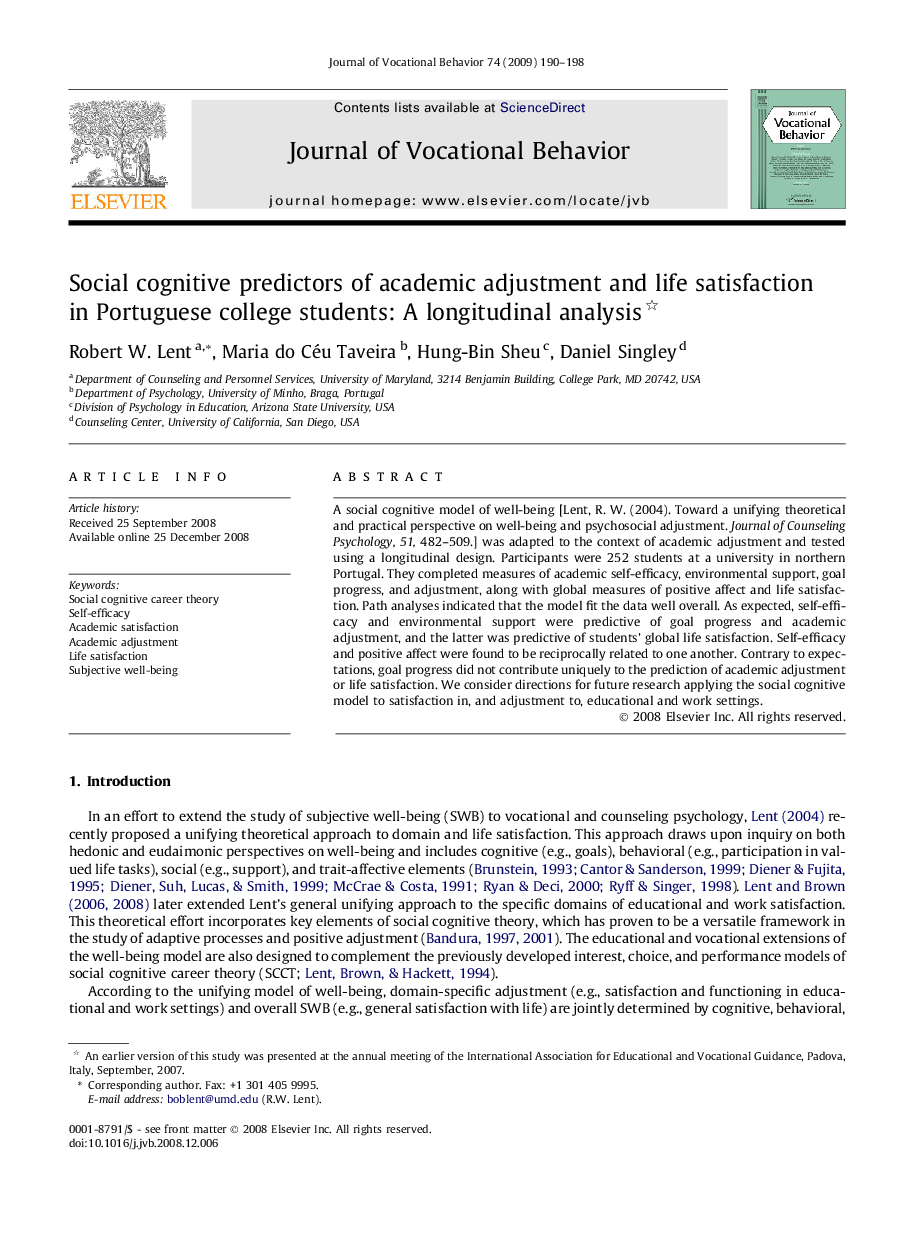| Article ID | Journal | Published Year | Pages | File Type |
|---|---|---|---|---|
| 887450 | Journal of Vocational Behavior | 2009 | 9 Pages |
A social cognitive model of well-being [Lent, R. W. (2004). Toward a unifying theoretical and practical perspective on well-being and psychosocial adjustment. Journal of Counseling Psychology, 51, 482--509.] was adapted to the context of academic adjustment and tested using a longitudinal design. Participants were 252 students at a university in northern Portugal. They completed measures of academic self-efficacy, environmental support, goal progress, and adjustment, along with global measures of positive affect and life satisfaction. Path analyses indicated that the model fit the data well overall. As expected, self-efficacy and environmental support were predictive of goal progress and academic adjustment, and the latter was predictive of students’ global life satisfaction. Self-efficacy and positive affect were found to be reciprocally related to one another. Contrary to expectations, goal progress did not contribute uniquely to the prediction of academic adjustment or life satisfaction. We consider directions for future research applying the social cognitive model to satisfaction in, and adjustment to, educational and work settings.
